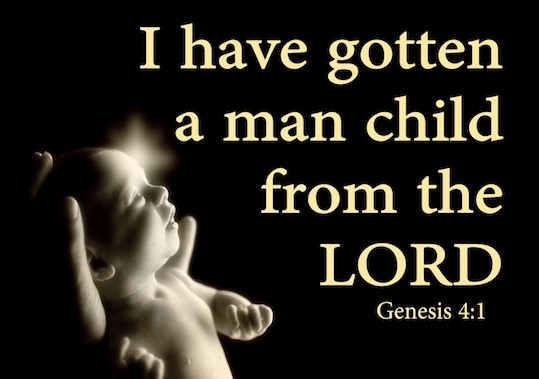Imagine that I was a guest speaker at your church. Or maybe at your social club or gathering of friends. Maybe you had heard that I have some insightful ideas and some things that will better help you understand God and yourself, and so you showed up to hear what I had to say.
And imagine that after the introduction, I stood up, and one of the first things I did was spend several minutes insulting you, your friends, and everything you had ever thought, said, or done. Imagine I said something like this:
Thanks for having me to speak, you morons. You’re all a bunch of idiots. You have never had an intelligent thought in your life. Everything you think and say is nothing but stupidity and ignorance. And it’s your own fault, really. You have intentionally turned away from wisdom and knowledge and decided to keep yourselves dumb and oblivious to anything approaching intelligence.
And it’s not just your mind, but your actions and behavior as well. Have you ever done anything loving or kind in your entire life? No. Everything you do is pure stupidity. You are filled with nothing but greed, lust, hate, and violence. Seriously. You may be thinking, “But Jeremy, we do some good things. We’re not all evil all the time.” Well, you’re wrong. Everything good that you think you do is actually just done out of selfishness, ignorance, arrogance, and pride. You’re greedy all the time, and everything you do is just to satisfy your own lusts.
If I was a guest speaker at your gathering, and that is how I started my talk, how would you respond?

Ironically, there are many Christians who would probably shout “Amen!” because, oddly, some Christians like to be regularly whipped with a verbal tongue lashing. Some Christians like to be verbally abused by pastors. They’re Christian masochists. They enjoy being reminded how depraved, immoral, and evil they are.
But the majority of people would be offended. And rightly so. Nobody wants to be insulted. Nobody wants to be told that they are nothing but ignorant sinners and that everything they do is wrong.
I myself would be offended if anyone said such things to me. In fact, if some preacher or teacher said these things, I would want to ignore everything else they taught, because one of my central beliefs is that if a person cannot say something with love, then they are not speaking truth. While it is not kind and loving to speak untruth, it is a fact that genuine, godly truth will always be spoken in love. Paul says in Ephesians 4:15 that we must speak the truth in love. So if someone is not speaking the truth in love, then they don’t need to be listened to.
In fact, I would argue that love is a litmus test for truth. If someone thinks they have the truth, but they cannot say it in love, then they don’t have the truth. True truth, when truly spoken, will be spoken in love. Therefore, if someone is claiming to speak the truth, but they say it with hate and venom, then they are not speaking truth, but lies and deceit.
So, if I came to your gathering and said the things I accused you of being ignorant, perverse, immoral, having no understanding about God, being spiritually empty, hard of heart, callous, full of lust and sensuality, and greedy for all forms of impurity, you would have every right to ignore everything else I said. In fact, even though my words would be accusing you, or others, of being evil and ignorant, it would in fact be me who was evil and ignorant for talking in such a manner. It would not be you who was sinning, but me.
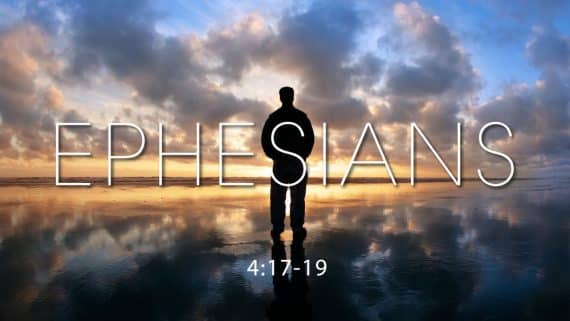
With all of this in mind, it is absolutely shocking to me what Paul seems to say in Ephesians 4:17-19. Here he is, the so-called Apostle to the Gentiles, absolutely blasting all Gentiles for being ignorant, backward sinners. After just saying that the truth should be spoken in love, Paul seems to abandon all pretenses of love to speak some hurtful truth, which indicates a complete lack of truth. Listen to his words in Ephesians 4:17-19:
This I say, therefore, and testify in the Lord, that you should no longer walk as the rest of the Gentiles walk, in the futility of their mind, having their understanding darkened, being alienated from the life of God, because of the ignorance that is in them, because of the blindness of their heart; who, being past feeling, have given themselves over to lewdness, to work all uncleanness with greediness.
Frankly, I don’t much care for what Paul writes here in Ephesians 4:17-19. I don’t like his tone. I don’t like his words. I don’t like his message. From a strictly face-value perspective, I think Paul is flat-out wrong. What he says and how he says it pisses me off.
I know. That is shocking to hear. Paul is an inspired biblical author. He can’t be wrong.
But I’m going to be bold enough to say it. If the traditional understanding of Paul’s words here is correct, then Paul is wrong. His words are harsh, judgmental, and unloving, and aside from that, Paul is flat-out wrong.
Or, at least, the way we read Paul is wrong.
But most of us think Paul is absolutely correct here. And do you know why? Because we see that Paul is condemning “those evil Gentiles.” He’s not condemning me. He’s not condemning you. He’s condemning them. And so we smugly nod our heads in agreement with Paul, because his words are not a description of me. They’re a description of those evil sinners over there.
As we read through this list of sinful attitudes and behaviors, all of us can think of someone we know that they apply to. Maybe it’s a neighbor we despise who has no interest in God and is always getting wasted on the weekends and never has a stable relationship. Maybe it’s a boss or coworkers who is hateful toward us at work, and seems to only care about getting more and more money. Maybe it’s those idiots on the other side of the political aisle who are destroying our country. Maybe it’s the Wall Street executives or the pharmaceutical CEO’s or certain social media influencers or sports stars or Hollywood idols or famous musicians.
That’s who Paul is describing. Not me. Not us. Them.
And that is the way the way the majority of people read this text. It’s the way the majority of pastors preach this text. The usual approach to Ephesians 4:17-19 goes something like this:
Those non-Christians are evil. Paul’s describing them here. And sure, some of us Christians used to be that way, but we’re not that way any longer. We’re the good guys now. Those non-Christians are evil. Our task as Christians is to go save them and make them like us.
And then the teacher will quote Isaiah 64:6, “All their righteous works are filthy rags,” or Romans 3:10-12, “There is none righteous, no, not one; There is none who understands; There is none who seeks after God. They have all turned aside; They have together become unprofitable; There is none who does good, no, not one.”
And that is how this text is usually preached. I used to preach it that way. In fact, my original sermon on Ephesians 4:17-19 is still on my website, and you can find it on there still, if you want. I recently went and looked at it, and it pretty much fits with the summary I provided above.
And I am appalled. I repent of ever teaching this passage that way.
Why am I appalled? Why do I repent?
Because in the last fifteen or twenty years, God has taken me on a journey to show me how wrong I was in my views toward others. I am still on this journey with God, and still have a long way to go, but God is showing me a completely different way to view other people, and at the same time, a completely different way of reading and understanding Scripture.
So today, I can say I was wrong. And I can also say that the common way of reading Paul here in Ephesians 4 is also wrong. I think the majority of Christians have misunderstood what Paul is saying here. It is completely out of character for Paul, the gracious and loving Apostle to the Gentiles to spew such venom toward the Gentiles as he seems to do in Ephesians 4:17-19 (cf. Barth, Anchor Bible Commentary).
And let’s face reality here as well. If Paul’s words in these verses are to be understood at their face value, then Paul is absolutely wrong in what he says. The only people who can agree with what Paul seems to say about non-Christians here, are people who don’t actually know any non-Christians. And again, that was me for most of my life. I didn’t really know any non-Christians and so I just took Paul at his word here, and in other similar passages, and put a blanket condemnation on them all. They’re all ignorant fools. They’re all blind, violent, backward sinners with no redeeming traits at all. And because of this view I had of them, I didn’t really want to get to know any of them either. Why would I want to become friends with such evil people? They’re wickedness would probably rub off on me somehow. I’d be guilty by association.
But then God started to do some crazy things in my life. Things that were very, very painful at the time, and in many ways, are still quite painful. Through these events, I was forced to encounter many non-Christians. And I was absolutely shocked by what I found. In more ways than I could count, I discovered that many of the non-Christians I encountered behaved more like Jesus than did most of the Christians I knew. I encountered more love, grace, forgiveness, acceptance, generosity, and kindness among non-Christians than I ever had in church.
If you have experienced this, then you know what I’m talking about. If you haven’t experienced this, it’s probably because you are still too involved in your local church to have genuine friendships outside of church. I know that may be hard to hear, but I have come to believe in a principle that I have found to be always true among Christians. It is this: Christians who think all non-Christians are always evil, greedy bastards don’t genuinely know any non-Christians.
I said what I said. And I stand by it.
When you genuinely get to know non-Christians, you discover that many of them are wise, kind, loving, generous, patient, joyful, gentle, and loyal. Many of them are more like Jesus than many Christians. Are they perfect? Of course not. Just like Christians aren’t perfect. Do they still have faults and failures? Absolutely. Yes. Just like Christians.
You might say, “But Jeremy! They’re headed for hell! We’re going to heaven.” Well, I’m not talking about that. Except I will say this: That mentality right there is what causes so much arrogance and pride among Christians. Be very careful about thinking that way. I explain more about this in my book What is Hell? and so won’t say anything more about this now.
The issues here in Ephesians 4:17-19 seems to be about intelligence and morality, not eternal destiny, and when it comes to intelligence and morality, there is almost no difference between Christians and non-Christians. If there is a difference in intelligence and morality between the Christians and non-Christians, I would have to say that non-Christians have us beat. If moral development was a race, the church is losing.
And why are we losing? Because we have an ingrained sense of moral superiority which allows us to ignore all evidence to the contrary. We think we have the once-for-all final truth about life and knowledge and morality in the Bible, and so we can ignore any ideas or progress in culture about truth and morality. We hold firmly to truths “once for all delivered to the saints” and think we don’t need anything else. And as we sit there with our Bible on our laps and our hands in the air, culture passes us by. But rather than learn from others, we prefer to use passages like Ephesians 4:17-19 to condemn others so that we can safely and comfortably ignore them.
All of this is wrong. Wrong. Wrong. Wrong.
So what are we to do with passages like Ephesians 4:17-19? And why did Paul write it?
There are three steps to seeing what Paul meant when he wrote this text, to understanding why Paul wrote it. I am going to walk you through these three steps. The first step will be to simply look at the text itself, to understand the words and phrases of Ephesians 4:17-19. This will be a straightforward and literal reading of the text.
The second step will be to notice something very strange about the text that most people miss. There are numerous contextual clues that most people miss which provides insight on how to properly understand what Paul was saying and why he wrote these verses. So the second step will be to point out these contextual clues.
Thirdly, and finally, then, only after we make this crucial observation, we will be able to see what Paul really meant when he wrote these words.
So that is how we will proceed. First, a straightforward reading and explanation of the text, then a missed observation about the text in its wider context, so that, finally, we can understand what Paul was doing when he wrote the harsh words of Ephesians 4:17-19.
Explanation of Ephesians 4:17-19
Ephesians 4:17-19. This I say, therefore, and testify in the Lord, that you should no longer walk as the rest of the Gentiles walk, in the futility of their mind. Having their understanding darkened, being alienated from the life of God, because of the ignorance that is in them, because of the blindness of their heart; who, being past feeling, have given themselves over to lewdness, to work all uncleanness with greediness.
With that word, therefore, Paul is providing instructions based on what he just finished writing. Ephesians 4:11-16 contains what I call “God’s Blueprints for Church Growth.” In that passage, Paul explains how we are all to be ministers to each other using the spiritual gifts God has given.
Now Paul is going to build on that by showing that members of God’s church should walk in purity. But Paul does this in a strange way. He does this by condemning the way of life in which the Gentiles walk.
What is interesting about this is that the Ephesian Christians were Gentiles. And in Ephesians 4:18-19, Paul goes on to say some pretty negative things about Gentiles. Isn’t this odd? Paul bashes the character, intelligence, and behavior of the people he is writing to! Why would he do this?
Well, the typical answer in the average commentary is that while the Jews used to divide the world up into two groups of people—Jews and Gentiles—with the birth of the church, which included both Jews and Gentiles, there were now three groups of people: Jews, Gentiles, and Christians. And so, the explanation goes, even though the Ephesian Christians were Gentiles, they were actually now a separate people group. They were, in a sense, a third race (1 Cor 10:32). They were Christians now, and not Gentiles. So when Paul bashes the Gentiles here, he is not bashing the Ephesian Christian Gentiles, but the regular, heathen non-Christian Gentiles.
Frankly, I don’t like this explanation at all. I think it is wrong. I think it completely misunderstands the message and purpose of Paul. After all, back in Ephesians 2:11-22, Paul says that while there used to be two groups of people, Jews and Gentiles, insiders and outsiders with God, Jesus has now broken down the dividing wall of hostility so that now, all are accepted, forgiven, and welcome into the family of God.
But now it seems strange to me that, after tearing down the middle wall of separation, the wall of hostility and enmity, the wall of judgment and condemnation of other people, it seems strange that Paul would now erect a brand new wall, this time, not between Jews and Gentiles, but between Gentiles and other Gentiles. After tearing down the wall of enmity, is Paul really constructing a new wall all over again?
I cannot see Paul doing this. He was the Apostle of grace. He was the Apostle to the Gentiles. Well, we will see later why Paul is wrote what he did here. For now, let us continue looking at the text of Ephesians 4:17.
 Also note the verb walk. It is used twice in Ephesians 4:17, and it is a key word for the rest of chapter 4, all of chapter 5, and the first half of chapter 6. Ephesians can be summarized with three verbs: Sit, Walk, Stand. Chapters 1–3 are about being seated with Christ. Chapters 4–5 and half of chapter 6 is about walking with Christ. And then Ephesians 6:10-20 is about standing our ground with Christ.
Also note the verb walk. It is used twice in Ephesians 4:17, and it is a key word for the rest of chapter 4, all of chapter 5, and the first half of chapter 6. Ephesians can be summarized with three verbs: Sit, Walk, Stand. Chapters 1–3 are about being seated with Christ. Chapters 4–5 and half of chapter 6 is about walking with Christ. And then Ephesians 6:10-20 is about standing our ground with Christ.
So we are in the walk section of Ephesians. The verb walk refers to our manner of life, our conduct, the way we behave, the way we think. And rather than telling his readers right away how they should walk, which he begins to do in Ephesians 4:17, Paul first provides a negative example of how the Gentiles walk.
I also want to point out that the words no longer in verse 17 are a hint at what Paul is doing. This phrase serves as a reminder to his readers that they used to walk in the way he is about to describe, and that there is a distinct possibility that they can still walk in these same wicked ways. Some people say that it is impossible for true Christians to habitually practice, or continually walk, in certain sinful behaviors and attitudes. But Paul’s instruction here that his readers no longer walk in the ways he is about to describe is a clear indication that Paul knows that true Christians can, and do, walk in these ways.
It is a helpful principle of biblical interpretation and biblical theology to remember that every prohibition in Scripture, every command to refrain from a certain behavior, is inherently an admission that true Christian can, and do, live in such sinful ways. Any positive imperative written to the New Testament Christian, presupposes by its very nature, that the opposite of that imperative can take place in that believer’s life. If the Bible tells Christians not to do something, then this is inherently an admission that Christians can do it. When there is an instruction to not do something, as we have here in Ephesians 4:17, it implies that even though a person is a Christian, it is still possible for them to continue to do what the instruction tells us not to do.
This is an important theological point, because there are many people today who preach and teach that true Christians cannot habitually sin or will not live in certain patterns of behavior. But the Bible indicates otherwise by including commands to not live in these ways.
With this in mind, let us look at the rest of this passage to see the ways in which Christians are supposed to no longer walk.
In the rest of the passage, Paul lists several characteristics of these Gentiles. Different Bible translations offer different suggestions for how to translate and punctuate the list of traits, but I’m not going to get into the various options. All that matters for our purposes is that we understand the terms and phrases in Paul’s warning.
The first trait is in the last part of Ephesians 4:17. Paul writes that Christians should not walk as the Gentiles walk, in the futility of their mind.
This statement would have been a bit of a shock to the first century reader in Paul’s day. “The Greco-Roman society considered the mind to be the best, noblest, and most worthwhile part of the human being—they even considered it to be divine. And with geniuses like Socrates, Plato and Aristotle to boast of, they took great pride in their intellectual enlightenment.”[1]
So Paul’s statement in Ephesians 4:17 about the futile mind of the Gentiles would have shocked most people in his day. Saying that we have a worthless mind would get the same reaction today, right? I mean look around! Look how much we’ve accomplished! All the cures for diseases we have. How far we’ve come in our understanding of the human body, and of this world, and of the universe, and the nature of molecular structures! The advances in philosophy, psychology, physics, medicine, biology, and every other field shows that we are not futile in our thinking. Imagine someone showing up today and telling the entire scientific world that their thinking is futile and worthless!
But that is essentially what Paul is doing with this first descriptive phrase. He is telling the Greco-Roman world that they are futile in their thinking, in their patterns of thought. How can Paul say this? How can Paul say that Gentiles have a worthless mind?

Paul doesn’t mean that the mind is unable to accomplish great things and come up with great ideas. What he means is that it is aiming at a meaningless goal with silly methods.[2]
So what if we can send a man to the moon, and find a cure for cancer, and clone a human being? So what? How will any of that help you when you die without God? All of our accomplishments and achievements are worthless then. Pointless. Meaningless. Futile.
Humans have made great academic strides in nearly every possible direction, but our advances have led us only closer to death and destruction. Carl Jung raises the question this way:
How is it that, for all our progress in all the administration of justice, in medicine and in technology, for all our concern for life and health, monstrous engines of destruction have been invented which could easily exterminate the human race?[3]
Jung goes on to say that these devilish engines and destructive ideas were developed by minds of “reasonable, respectable citizens” who are everything we would wish that all great humans could be. Yet it all leads to greater futility, pain, subjection, violence, death, and destruction. “Our rationalistic attitude,” Jungs writes, “leads us to believe that we can work wonders with international organizations, legislation, and other well-meant devices.”[4]
This is what Paul means when he is talking about the futility of the mind. Humanity has the brightest minds working on the hardest problems, but nothing seems to be helping. The same problems keep cropping up over and over and over. We make progress in all sorts of areas, but when it comes to the condition of the human heart, mind, and soul, no real progress is being made at all!
Now, you may be tempted to think that the problem with all these great thinkers, inventors, doctors, scientists, and philosophers is that they were not Christians. It is those “Gentiles,” as Paul indicates, that are the problem. It’s not us. It’s them. If they simply adopted a heavenly perspective, an eternal mindset, then things would turn out better.
If that is what you are thinking that right now, then hold on to that thought. It will be addressed shortly. If you agree with that idea that the whole world would be better if the whole world became Christian, then just hold on to that thought, and we will see how Paul addresses it.
The rest of the descriptive phrases are essentially the same, and will be covered more quickly. Paul is basically condemning all the beliefs and behaviors of the Gentiles, which again, is a very strange thing for the Apostle of the Gentiles to do.
The next trait of the Gentiles is that they have their understanding darkened. Here again, the emphasis is on the lack of knowledge among the Gentiles. Their mind is darkened, meaning there is no inner light in their minds. They have an inner shadow that obscures and hides all the great essential truths from their understanding. Since this trait is so similar to the previous one of Gentiles being futile in their minds, nothing else needs to be said here.
The third characteristic of the Gentiles, according to Paul, is that they alienated from the life of God. This means they don’t know or care about God or what He wants, and so they live as they please. The next part of Ephesians 4:18 tells us why they are this way. They are alienated because of the ignorance that is in them, and because of the blindness of their heart. They are willfully determined to stay in their sin. Again, there is an emphasis here on mental ignorance and blindness, showing that the root problem is a problem in the mind. Paul seems to be implying that the Gentiles having nothing good going on inside their mind.
Next, in the first part of Ephesians 4:19, they are past feeling. They are without feeling. This doesn’t mean that they don’t have physical sensation, feelings, or emotions. They do. The first century Mediterranean world was motivated by honor and shame, and so in that context, this phrase means that they have no sensitivity toward the issues of honor and shame. Today, we might say that their conscience been seared (1 Tim 4:2). They are no longer sensitive to the sensations of a guilty conscience.
Then we read that they have given themselves over to lewdness. Lewdness can also be translated as lasciviousness, debauchery, sexual excess, absence of restraint, or insatiable desire for pleasure. And finally, Paul writes that the Gentiles do all of this uncleanness with greediness. They engage in all of these behaviors that Paul has listed, and they cannot get enough of such things. No matter how much they live in such wicked ways, they are always greedy for more.
Now what are we to make of this blanket condemnation by Paul of all things Gentile? Sadly, most Christians seem to rip passages like this out of context so that they can smugly condemn and judge anyone else who is not a Christian. They also use texts like this to ignore any ideas or wisdom that might come from a non-Christian. For example, I purposefully quoted Carl Jung above. Because many people feel that certain elements in his life prove that he was not a Christian, and therefore, they can disregard anything he taught or said. Christians will similarly completely discard ideas from the great philosophers and scientists of history.
I recently heard a famous pastor in California say that the Bible contains all truth, and so if something is not found in the Bible, then it is not true and can be ignored. What a shocking statement! It’s also completely contradictory to any possible way of living. For example, this particular pastor made this statement on social media. Well, the technology behind social media is not in the Bible. The people who created the computer code, and developed the apps certainly were not using biblical truths to do so. And electricity and computers aren’t in the Bible. Nor is the polyblend suit and satin tie this pastor was wearing in the picture on his social media post. Nor the spectacles he had on his face. Nor the pulpit he was standing behind. Nor the microphone he was speaking into.
And yet, according to this pastor, if it’s not in the Bible, it’s not true. It is because of passages like Ephesians 4:17-19 that this pastor feels totally justified in making such a ridiculous claim. He can point to Paul’s description here and say, “See? Non-Christians are futile in their thinking. They are spiritually blind and mentally ignorant. They have no connection with God, and nothing good to say. Everything they do is nothing but sinful sensuality and lust. So we can safely ignore them all.”
What an attitude! In fact, let me go a step further and say, “What an ignorant attitude!” Any Christian who says that non-Christians are ignorant and blind and so can be ignored, is themself ignorant and blind.

But wait! Isn’t that what Paul himself just said? Didn’t Paul just say that non-Christians are ignorant and blind, darkened in their understanding, futile of mind, given to nothing but sensuality, lewdness, and greediness? If I just said that anyone who says such things is ignorant themselves, and Paul just said such things, then am I saying that Paul is ignorant?
No, I am not. Here, as always in Scripture, context is critically important. And people like that famous pastor who think that Paul is issuing a blanket condemnation of all non-Christians here in Ephesians 4:17-19 have missed a very important truth from the context of this passage to show us what Paul was actually saying (Note: all similar passages have similarly contextual clues about what is really going on. Cf. Eph 2:3; 5:3-5; Col 3:5-10; Rom 1:19-24).
Let us briefly look at this overlooked contextual observation to see what Paul was saying, and then, once we have understood the context, we can reconsider Ephesians 4:17-19 again, to see how to properly read this text.
An Overlooked Observation
So what is Paul saying in Ephesians 4:17-19? Paul seems to be blasting the Gentiles. He seems to be issuing a blanket condemnation on all Gentiles for everything they think, say, and do. And since Paul is the Apostle to the Gentiles, this seems to be a very strange and unloving approach. Paul has just written in Ephesians 4:15 that we should speak the truth in love, but there seems to be very little love in Ephesians 4:17-19.
 First of all, before we look to the wider context, an alert biblical thinker will recognize that Paul is engaging in a classic scapegoating technique. He is portraying a group of outsiders as monsters, so that they can be safely sidelined, ignored, or in some more extreme cases, arrested or even killed. All hatred, war, and violence comes from scapegoating, and one of the primary purposes for the life, death, and resurrection of Jesus was to unveil the scapegoating sin that all humans practice.
First of all, before we look to the wider context, an alert biblical thinker will recognize that Paul is engaging in a classic scapegoating technique. He is portraying a group of outsiders as monsters, so that they can be safely sidelined, ignored, or in some more extreme cases, arrested or even killed. All hatred, war, and violence comes from scapegoating, and one of the primary purposes for the life, death, and resurrection of Jesus was to unveil the scapegoating sin that all humans practice.
Paul knows this. It is quite evident from various other texts that Paul knows that humans love to scapegoat other humans, and that Jesus came to reveal it and put an end to it. But Paul engages in it here. … Or at least, he seems to.
Paul uses a classic scapegoating technique to create a division between two people groups. He is creating an “us vs. them” division. Insiders vs. outsiders. Though Paul earlier said in Ephesians 2, “You were outsiders, but now you are insiders,” Paul now seems to say, “There is a new group of outsiders. It’s those nasty Gentiles.” (cf. Perkins, New Interpreters Bible Commentary, 67).
And this is a very curious thing to do, because previously, when Paul referred to Gentiles, he was referring to the Gentile Christians of Ephesus. In Ephesians 2:11 and 3:1, he doesn’t say, “You Gentile Christians,” but simply “You Gentiles.” But now Paul issues a blanket condemnation on all Gentiles. But his readers knew, as you and I do, that he’s not talking about the Gentile Christians in Ephesus, but all the other Gentiles. Paul is now contrasting the Gentile Christians from the Gentile pagans, even though he has called both groups “Gentiles.” He is creating a division between the two groups. At least, that’s what he seems to be doing.
Which is very strange, because previously when Paul wrote about Gentiles, Paul said that the dividing wall of enmity between them and God had been torn down (Eph 2:14). But now, it appears from a surface reading of the text that the wall was not, in fact, torn down at all; it was only moved. While there used to be a wall between Jew and Gentile, now there was a wall between Christians and everyone else. So there are still two groups, and there is still a wall between them. And just as before, one group should shun and reject the other, just as it has always been.
And many Christians today agree. That famous pastor says, “Ignore everything non-Christians say. Just read your Bible. That’s all you need.” Others say, “Shun non-Christians. Ignore them. Don’t hang out with them. They will drag you down into their sin and shameful ways of living. Don’t read their books. Don’t listen to their music. Don’t fellowship with them in any way. If you must interact with them, do so only to invite them to church or share the gospel with them.”
Is this really what Paul is saying? Did Paul really tear down the dividing wall of separation in Ephesians 2, only to reconstruct it in Ephesians 4?
No.
Quite to the contrary, Paul performs a masterful move here which reveals the truth of what he is actually saying. Though Paul initially seems to be erecting another dividing wall of separation, he then, with just a few words, tears it all down and shows the Ephesians Christians what he really wants them to see.
Let me walk you through it. In Ephesians 4:17-19, Paul writes a disparaging description of Gentiles. He knew, due to the propensity humans have for scapegoating others, that his readers would be nodding their heads in agreement with what he writes. As they read his words, they would be saying, “Yes! Those Gentiles are so evil and depraved! I’m not like that, thank God. But they are. I need to stay away from such sinners! I need to ignore them.” Many Christians today have the same attitude.
But then Paul turns the tables on his readers. He makes a masterful move. It’s a theological checkmate. In the following verses, in Ephesians 4:20-22, Paul turns the tables on his readers and basically says, “Remember how I referred to you as Gentiles before? And I’m writing here about Gentiles also, and you thought I was referring to someone else, those non-Christian Gentiles? Well, I’m not. I’m still writing about you!”
In Ephesians 4:20-22, based on something Paul says, we learn, much to our shock, that in Ephesians 4:17-19, Paul was not writing about unregenerate Gentiles at all, but about the Ephesians Christians themselves! And therefore, Paul is also writing about us!
In Ephesians 4:20-22, Paul says to the Ephesian Christians, “Now that you are a follower of Jesus, you need to put off the old man which grows corrupt according to the deceitful lusts.” In other words, Paul is saying, “That description of Gentiles I provided earlier? That’s a description of the old man that is still living in you! It’s you I was describing! Not them. And you need to get rid of that way of thinking and living!”
Further evidence for this is that Paul goes on in the rest of Ephesians 4 and Ephesians 5 to give some very specific examples of how they should put off the old man and put on the new. He tells them how they should no longer be like the description he provided in Ephesians 4:17-19 and should instead be who Jesus has called them to be.
Do you see what a masterful move this is? It uses the behavior of others to hold a mirror up to our own soul. Paul blasts Gentile thinking and behavior, knowing full well that his reading audience would be nodding their heads in agreement. Some would be shouting “Amen!” Others would be saying, “Preach it!” Then, after they’re all worked up into a lather, Paul says, “Oh, and by the way, I’m talking about you.” Imagine the silence that then settles over the listening audience. And Paul basically goes on to say, “And the simple fact that you thought I was talking about someone else reveals the truth of this description for you. You are futile in your thinking, and darkened in your understanding, and blind in your hearts because, although you are a Christian, you are still carrying around that old man! Get rid of him!”
Talk about a gut punch.
Now this is a very common tactic for Paul. He does something similar in Romans, 1 Corinthians, Galatians, and Colossians. In various places, he talks about various sins that Gentiles commit, and then he turns the table on his reading audience and says, “But I’m not talking about them. I’m talking about you! The things you condemn in others, you are guilty of yourselves! Don’t worry about them! Focus on your own life!”
 Essentially, Paul is holding up a mirror to the souls of his readers by getting them to condemn some other group of people, and then he says, “Look! You’re looking into mirror. They are the mirror of you!”
Essentially, Paul is holding up a mirror to the souls of his readers by getting them to condemn some other group of people, and then he says, “Look! You’re looking into mirror. They are the mirror of you!”
And even though this is a common tactic for Paul, you should know that Paul didn’t come up with it himself. It is a very common literary device found all over the Hebrew Scripture. The prophetical book of Amos is one famous example.
The book of Amos was written to the people of Israel, and it begins by pronouncing judgment upon all the nations that surround Israel. Over and over, Amos lists the sins that these nations committed, and then he condemns them for it. Amos does this with Damascus (Amos 1:3-5), Gaza (Amos 1:4-8), Tyre (Amos 1:9-10), Edom (Amos 1:11-12), Ammon (Amos 1:13-15), Moab (Amos 2:1-3), and Judah (Amos 2:4-5). But then, beginning in Amos 2:6, the prophet turns the tables on his readers and says, “Hey … as I was going through that list of sinful nations and condemning all their sin, and you were nodding your head in agreement about how sinful and wicked those other nations are … Guess what? You are all guilty of exactly the same things!”
You can almost imagine the scene:
Amos: The people of Damascus are evil! God will punish them!
People: Yeah!
Amos: Gaza is so wicked, God will destroy it!
People: Yes! Get rid of them all!
Amos: Tyre is full of sin and rebellion! Destruction is coming!
People: The sooner the better!
Amos: And the same goes for the ignorant, idolatrous, greedy, sinful people of Edom, Ammon, Moab, and Judah!
People: Yes! Yes! Yes! Yes!
Amos: And worst of all, the greatest sinners of all … is you!
People: Yea… wait … what?
Amos: Everything those other people have done, you’ve done worse!
People: No. That’s not true.
Amos: It is. Look at yourself. Take a careful look. Judgment is coming. If you want judgment to fall upon your enemies, then be careful, because it will fall on you first. You are just as bad as they are, if not worse.
This is exactly what Paul is doing here in Ephesians 4. He describes the traits of the Gentiles, knowing that his reading audience will be nodding his head in agreement about how wicked and evil “they” are. And then Paul holds up the mirror, and says, “Yes. I’m describing you. So get rid of that old man and put on the new.”
So Paul is not constructing a new dividing wall of hostility. Jesus tore down that wall. Paul is not building a new one. He is not creating a new “us vs. them” division made up of insiders and outsiders.
Paul is setting a trap for his religious readers. He’s pulling the rug out from under his readers. In Ephesians 4:17-19, he paints this vivid picture of the Gentiles—futile minds, darkened understanding, hardened hearts—and it’s easy to nod along, thinking, “Yeah, those outsiders are a mess.” It’s comfortable to point fingers. Then in Ephesians 4:22, he turns it around: “You were taught … to put off your old self, which is being corrupted by its deceitful desires.” Suddenly, it’s not about “them”—it’s about “you.”
Paul’s not subtle about this elsewhere either. In Romans 2:1, after slamming idolatry and immorality, he hits the self-righteous with, “You, therefore, have no excuse, you who pass judgment on someone else, for at whatever point you judge another, you are condemning yourself.” It’s a classic move: lure you into agreement, then flip the mirror. Here in Ephesians, the trap’s sneakier—4:17-19 sets up the “Gentile life” as the foil, but 4:22 reveals that “old self” isn’t gone just because you’re a Christian. It’s still lurking, and those traits—insensitivity, lust, impurity—can be yours if you’re not careful. Paul is saying, “Don’t get smug in condemning non-Christians. Their sins are still yours as well. In fact, since you claim to be an enlightened follower of Jesus Christ, your sins are worse!”
But we refuse to see it, because it’s so much easier and more enjoyable to point the finger at someone else. Let me quote Carl Jung again. He once wrote, “People will do anything, no matter how absurd, to avoid facing their own souls.” He also taught that one of the best ways to see our own souls is to see it reflected in the mirror of other people. He said that everything that irritates us about others can lead us to an understanding of ourselves. One of the best ways that God uses to reveal to us the faults and problems of our own soul is to see it reflected back to us through the lives of other people. Other people are the mirror to our own soul. Carl Jung taught that our relationships with others are the mirrors of ourselves.
And many Christians condemn Carl Jung and ignore his insights in psychology because they claim he wasn’t a Christian. But Jung is teaching the same thing that Paul teaches here. Both are teaching that it is helpful to look at the sins of others, not so that we might condemn them, but so that we might get a glimpse into the problems of our own soul. We look to others as a mirror for the self. That is what Jung taught and that is what Paul teaches here in Ephesians 4:17-19.
Each of us have an inner shadow, a hidden, unrecognized, unacknowledged, messy part of ourselves that we shove down so that we don’t have to deal with it. When we see sin, hypocrisy, or arrogance in other people and it grates on us, maybe it’s not just them. Maybe it’s the mirror flashing something we’re wrestling with too, something we don’t want to deal with.
The world is a mirror that reveals ourself to ourself, as we really are. When we have emotional responses to others, particularly those that cause irritation or discomfort, this response can reveal unresolved or unacknowledged aspects of ourselves. The “irritating” traits we see in others might be connected to our own hidden self, the unconscious part of our personality that we repress or deny. By examining our reactions to others, we can gain insights into our own unconscious patterns and work towards greater self-awareness and personal growth.
But we must be careful. The mirror of others is not an exact mirror. For example, if you find yourself constantly annoyed by someone who is always late, this doesn’t mean that you also are always late. You’re probably not. You are probably very punctual, and so it annoys you when others are late. But that annoyance is an opportunity to learn something about yourself. Maybe you have tendencies towards perfectionism or control, which you are projecting onto the other person.
This is what Paul is doing in Ephesians 4:17-19. He purposefully creates a scapegoat out of the Gentiles, so that he can expose the scapegoat for what it is and hold up to his Gentile Christian audience their own hypocrisy and self-deception. He uses Gentile non-Christians to hold up a mirror to Gentile Christians so that they can get a glimpse into the shadows of their own soul.
This brings us to the third and final point. We looked at the meaning of the text of Ephesians 4:17-19, the overlooked observation that helps us better understand what Paul is doing, and now, with this observation in mind, we want to talk about the proper way of reading this text.

The Proper Way to Read Ephesians 4:17-19
It should be obvious by now that Paul, as the loving and gracious Apostle to the Gentiles, is not blasting non-Christian Gentiles for how sinful and evil they are. This would contradict Paul’s mission and ministry, and pretty much everything he has written in Ephesians up to this point. He is not issuing a blanket condemnation on all Gentiles. He is not condemning them all or judging them all. Rather, he is holding up a mirror to the Ephesian Christians, and thus to us as well, so that we can see that the problem with the world is not “out there” but “in here.” The problem is with me. With you.
Paul is playing on a form of religious bigotry that all religious people have. Though we used to be just like the people we condemn, and though in many ways, we are still just like them, we think that we are now better than them. We look down our spiritual noses at them and say, with the Pharisee, “God, thank you that I am not like this sinner” (Luke 18:11). Paul is doing the same thing Jesus did when He pointed out the hypocrisy and spiritual blindness that exists among the religious people of His own people in His own day when He called the Pharisees “whitewashed tombs” (Matt 23:27-28).
The reality is that we are just like those we condemn. Sure, we’ve been redeemed, but this doesn’t make us perfect. We still have lots of faults in our own lives that requires Spirit-filled work to fix. By holding up the Gentiles in a negative light as he has, Paul is actually holding up a mirror for the Ephesian Christians to look into, so that they can see their own faces (Jas 1:23) and then go away and do something about what they have seen.
Paul’s language is rhetorical and pastoral, aiming to contrast the “old self” with the “new self” in Christ (as the chapter continues). Ephesians 4:17-19 is not a Gentile condemnation, but a call to Christian transformation. If we use this text to condemn and judge non-Christians, then we are guilty of the sins listed in this text. The text is not at all about “them” out there, but about “me” in here, in my heart.
For if we are truly honest with ourselves, we will recognize that genuine Christians can have many of the traits mentioned by Paul in Ephesians 4:17-19. Many Christians are futile in their thinking, insensitive, or indulgent, hard hearted, greedy, and full of sensuality. Many Christians really don’t know the first thing about God, though we certainly talk like we do.
Many of us think that since we have believed in Jesus, we’re good to go. That we are morally and spiritually superior to everyone else. But this is pure self-deception! It is futile thinking! Faith doesn’t automatically erase human flaws. We all can still chase impure desires despite our belief in Jesus. Some of us might lean on ritual or dogma (futile thinking) without genuine transformation or become desensitized to others’ needs while clinging to a moral high ground. The “continual lust for more” (NIV) does not seem to refer to sexual lust itself (which some Christians are guilty of), but could even manifest as an obsession with status, control, or material blessings under the guise of spirituality.
Many Christians struggle with hypocrisy, judgmental attitudes, arrogance, blindness to personal faults, unwillingness to learn or consider different perspectives, a lack of empathy for non-Christians and other similar traits. In fact, all such traits are far worse in the Christian than in the non-Christian, for it is Christians who claim to be different. Yes, such human failings are not exclusive to Christians; they just sting more when wrapped in a faith that’s supposed to counter them. Christians are just as broken as anyone, but the stakes feel higher because of the ideals they claim.
We need to remember that when someone becomes a Christian, human nature doesn’t just vanish. Faith might redirect people, but it doesn’t erase the raw stuff we’re made of—things like pride, fear, and selfishness. Christians are still wrestling with the same impulses everyone else does. Paul’s “old self” (Ephesians 4:22) doesn’t just vanish at conversion; it’s a lifelong fight. Some don’t fight it hard enough. Some retain the old self and simply learn to cover it up with outwardly righteous words and behaviors, but this just makes the problem even worse.
How does it make it worse? Christians become very good at hiding their flaws in church and from one another. But when we hide the flaws instead of deal with them, the flaws only become larger. They are amplified. Certain church environments, those that are insular, dogmatic, or performance-driven, can breed hypocritical judgmental traits. When faith becomes about rules, status, or “us vs. them,” it’s easy to slide into judgment, arrogance, or hypocrisy. Empathy gets sidelined when the focus is on being “right” rather than being loving. When the goal shifts from following Christ to policing others, we lose empathy and become judgmental instead. It’s far easier to spot sin “out there” than deal with it “in here.”
And in the churches where perfectionism is taught and sin is often condemned, some people are afraid to admit their own flaws. Admitting flaws or considering other perspectives takes guts. Some Christians might cling to certainty, using arrogance as a shield, because questioning feels like a threat to their identity or salvation. It hardens them, ironically, against the humility their faith calls for.
Sometimes complacency sets in. For some, faith starts strong but turns into a routine. They lean on the label “Christian” without the ongoing self-reflection or growth Jesus modeled. That blindness to faults or unwillingness to learn might come from resting on past decisions rather than living them out daily.
In Ephesians 4:17-19, Paul is not telling us to point the finger at those evil non-Christians and condemn them for all that is wrong with the world. He is, instead, pointing the finger at himself. And inviting us to point our finger at ourselves. The problem with the world is not someone else. For me, the problem is me. For you, the problem is you.
 In Kindergarten we are taught that whenever you point the finger at someone else, there are three fingers pointing back at you. That is how to read this text, and Paul deftly does some finger pointing at others to reveal to the Ephesian Christians that they should stop worrying about what others do, and instead take a look at their own life. Who cares what “they” do? Life isn’t about fixing them or controlling them. Life is about you becoming who God made you to be.
In Kindergarten we are taught that whenever you point the finger at someone else, there are three fingers pointing back at you. That is how to read this text, and Paul deftly does some finger pointing at others to reveal to the Ephesian Christians that they should stop worrying about what others do, and instead take a look at their own life. Who cares what “they” do? Life isn’t about fixing them or controlling them. Life is about you becoming who God made you to be.
Think of it as sacred selfishness. Before you can even begin thinking about fixing others, you must first work on yourself. You must first know yourself, and then work to accept yourself, love yourself, forgive yourself, and develop yourself into the person God wants you to be. And this is a task that will take your own life.
We object by saying, “But if all I do is focus on conforming myself to who God made me to be, then how will those people over there stop sinning? How will they get fixed?” The truth of the matter is that they are probably saying the same thing about you. So rather than everyone focusing on everyone else, imagine how much better the world would be if everyone just worked on themselves.
Christians often thing, “Well, the whole world would be better if the whole world became Christian.” And while that might be true, it reveals an internal problem for why it will never be true. As long as we are focused on the problems with “them” out there, the world will never improve. Think of the pride and arrogance it takes to say that the whole world would be better if the whole world was like us. And it is this pride and arrogance that leads to all the negative character traits that Paul lists in Ephesians 4:17-19.
The problem, Paul reveals, is not “them” at all. It’s you. It’s me. And we can’t change them. But there is one person in the world I can change, and it’s me. There is one person in the world you can change, and it’s you. The world is changed one person at a time, and the person you can change is not anyone “out there.” The only person you can change, the only person you should try to change, is you.
True and lasting change does not come from trying to get everyone else to behave like you. No, that will never work. It’s also futile, ignorant, and arrogant. But the world can change, and will change, if you seek to change yourself. Again, Carl Jung says it best:
As any change must begin somewhere, it is the single individual who will experience it and carry it through. The change must begin with an individual; it might be any one of us. Nobody can afford to look around and wait for somebody else to do what he is loath to do himself.”[5]
We are, each of us, “that infinitesimal unit on whom the whole world depends, and in whom, if we read the meaning of the Christian message aright, even God seeks his goal.”[6]
When we see someone acting ignorantly or arrogantly, it is not an opportunity to condemn them, but to take a good look into our own soul and see what work needs to be done inside. We must come to terms with our own shadow. We must learn to deal with the parts of ourselves that the mirror of others reveals to us.
Notes on Ephesians 4:17-19
[1] Swindoll, 123.
[2] Snodgrass, referencing Barth, 230.
[3] Jung, Collected Works X, (Amazon affiliate link) “The Undiscovered Self,” 276.
[4] Jung, Collected Works X, (Amazon affiliate link) “After the Catastrophe,” 217.
[5] Jung, Man & His Symbols, (Amazon affiliate link) 101.
[6] Jung, Collected Works X, (Amazon affiliate link) “The Undiscovered Self,” 305.

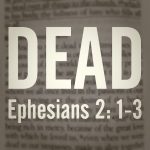
 I recently received this question from Aaron:
I recently received this question from Aaron: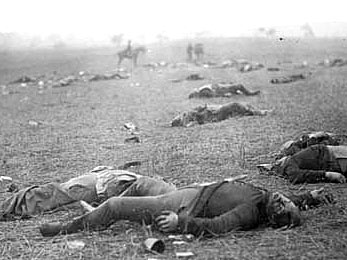 First, truth. Peace does not require truth about our enemies, but truth about ourselves. Finger pointing always leads to war. But it is only we can look at our own face in the mirror that we can own up to our own violence and bring an end to it.
First, truth. Peace does not require truth about our enemies, but truth about ourselves. Finger pointing always leads to war. But it is only we can look at our own face in the mirror that we can own up to our own violence and bring an end to it.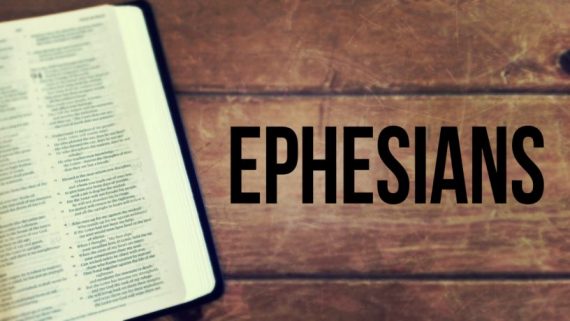
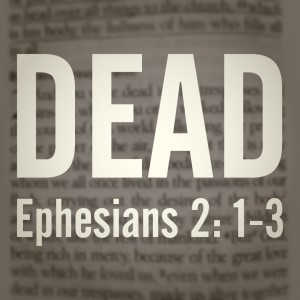 In my online course and my book, I teach that the word “dead” refers to something that is not functioning properly.
In my online course and my book, I teach that the word “dead” refers to something that is not functioning properly.
 Be careful about accusing and condemning others. If you are into politics, it is very easy to start seeing your political opponents as monsters. As less than human. It is easy to start calling them names and wishing for their death. That is the sin Paul has in view here in Ephesians 2:1.
Be careful about accusing and condemning others. If you are into politics, it is very easy to start seeing your political opponents as monsters. As less than human. It is easy to start calling them names and wishing for their death. That is the sin Paul has in view here in Ephesians 2:1.
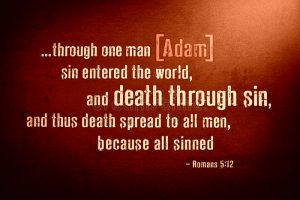 But is this what Paul has in mind?
But is this what Paul has in mind?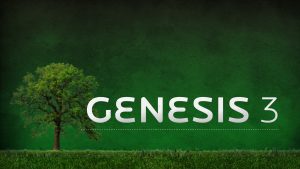 But a careful study of what Genesis 2–7 teaches about death and dying leads us in a very different direction.
But a careful study of what Genesis 2–7 teaches about death and dying leads us in a very different direction. The first death in the Bible is when Cain murders his brother Abel as a result of jealous rivalry (Genesis 4:8). Many Christians believe that the first death in the Bible occurs when God sacrificed a sheep in Genesis 3:21 or when Abel made a similar sacrifice in Genesis 4:4.
The first death in the Bible is when Cain murders his brother Abel as a result of jealous rivalry (Genesis 4:8). Many Christians believe that the first death in the Bible occurs when God sacrificed a sheep in Genesis 3:21 or when Abel made a similar sacrifice in Genesis 4:4. But beyond this, the source of the violent murder is Cain’s desire to have what Abel has, and the rivalry he engages in to obtain it (cf. Genesis 4:5-7). Furthermore, Cain then goes off to found a city (Genesis 4:17), which shows that murder and violence is at the foundation of all human civilization.
But beyond this, the source of the violent murder is Cain’s desire to have what Abel has, and the rivalry he engages in to obtain it (cf. Genesis 4:5-7). Furthermore, Cain then goes off to found a city (Genesis 4:17), which shows that murder and violence is at the foundation of all human civilization. In Genesis 6 we see that this seventy sevenfold vengeance has overtaken the whole earth so that now, everyone is only evil all the time and violence has covered the whole earth (Genesis 6:5, 11). The one thing that God did not want to happen has happened. In Genesis 6 all humans are engaged in violence against all other humans. The earth is suffering from an all-consuming contagion of violence.
In Genesis 6 we see that this seventy sevenfold vengeance has overtaken the whole earth so that now, everyone is only evil all the time and violence has covered the whole earth (Genesis 6:5, 11). The one thing that God did not want to happen has happened. In Genesis 6 all humans are engaged in violence against all other humans. The earth is suffering from an all-consuming contagion of violence. Paul goes on to contrast this with the righteousness that is in Jesus Christ (Romans 5:16-18). Therefore, as with many other words in this dictionary, the concept of death in Romans in closely connected with other key words that must also be understood in order to grasp Paul’s overall argument.
Paul goes on to contrast this with the righteousness that is in Jesus Christ (Romans 5:16-18). Therefore, as with many other words in this dictionary, the concept of death in Romans in closely connected with other key words that must also be understood in order to grasp Paul’s overall argument.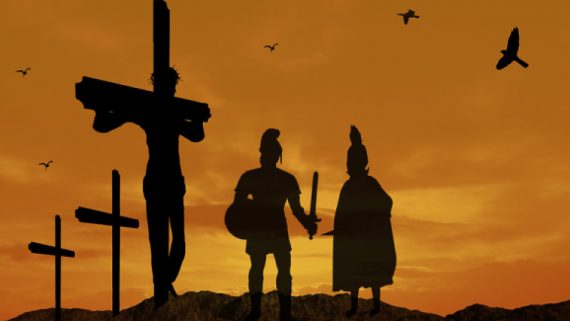

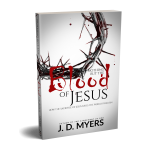
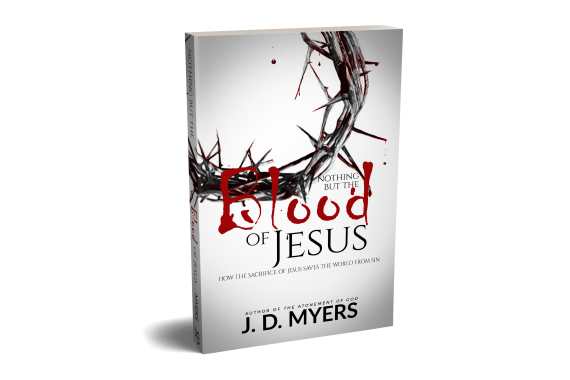

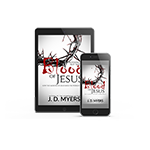
![[#60] Genesis 4 Overview – Sin and Civilization](https://redeeminggod.com/wp-content/uploads/2016/12/Genesis-4-1-Eve-Conceived-And-Gave-Birth-To-Cain-black-copy-150x150.jpg)
